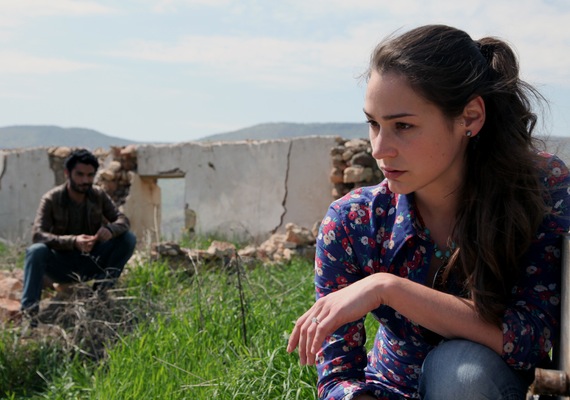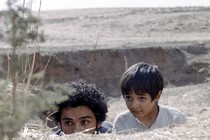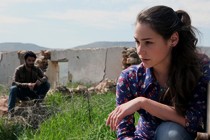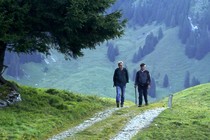The Swallow brings Mano Khalil back to fiction
- Swiss director of Kurdish-Syrian origin Mano Khalil is in competition for the Prix de Soleure with his road movie, the story of a terrible family secret

After being awarded the prestigious Prix de Soleure in 2013 with his moving film Der Imkel, Mano Khalil returns to the Solothurn Film Festival with his latest film, The Swallow (Die Schwalbe) [+see also:
trailer
film profile], the complex portrayal of a girl who goes in search of her family roots. A journey that turns out to be more dangerous and disturbing than expected.
As explained by Mano Khalil himself, who became renowned above all for his documentaries, The Swallow was born from his need to go back to working in a team, to experiment as part of a community as he hadn’t done for a long time. Nonetheless, The Swallow doesn’t shy away from the topics so dear to our director, such as the search for identity, the encounter-clash between cultures, and above all, the destiny of his native Kurdistan. Mira, the swallow (die Schwalbe in German) of his film, is in search of a nest, a home she has only seen in the few photos she has of her father, a father she has placed on a pedestal that turns out to be built on unsettlingly unstable foundations. Somewhat bored of her life in Switzerland and determined to find the parent she has always been denied, Mira (played by the outstanding Manon Pfunder) leaves for Iraqi Kurdistan. What awaits her is a reality that is hard to understand, in which violence, terrorism and score settling co-exist with a never-ending need for peace, a moment of calm and reflection in which to finally reflect on one’s destiny. Although on the one hand her hopes and burning desire for the truth drive her forward, on the other the shadows that find their way onto her path with increasingly insistency, the morbid reaction she receives from others when she mentions her father, foretell anything but a happy ending. And what if behind this heroic figure she has built up in her mind is a sea of lies? Would she be able to accept the truth, to integrate the tragedy into her family history, her identity? These are the questions that The Swallow puts to us.
Although Mira’s initial naivety, her apparent self-assuredness, is at times almost irritating, it is, when you think about it, very realistic. Far removed from areas of conflict, sat comfortably in front of the TV, we experience the horror as if we have been anesthetized, as if our feelings are being constantly mediated by the screen, as if they are virtual. What, instead, does it mean to experience war with no protection, exposed and alone? This is exactly what Mira experiences, the spokesperson of the story that slowly but surely goes from being personal to universal. Kurdistan’s landscapes that frame this strange road movie are so majestic that they make us feel small and terribly exposed. The horror that hides behind all this beauty suddenly seems too brutal to be real. How will Mira be able to assimilate all this to an everyday reality, her everyday reality in Switzerland, which seems worlds apart? A question at the heart of so many of the personal stories that surround us today in our cosmopolitan European cities.
A delicate yet tragic film that opens many wounds in the name of a necessary debate.
(Translated from Italian)
Did you enjoy reading this article? Please subscribe to our newsletter to receive more stories like this directly in your inbox.





















